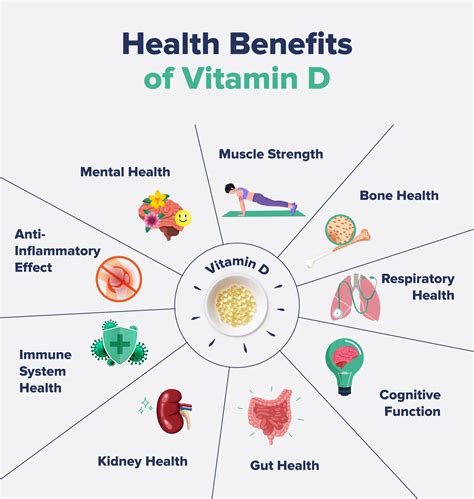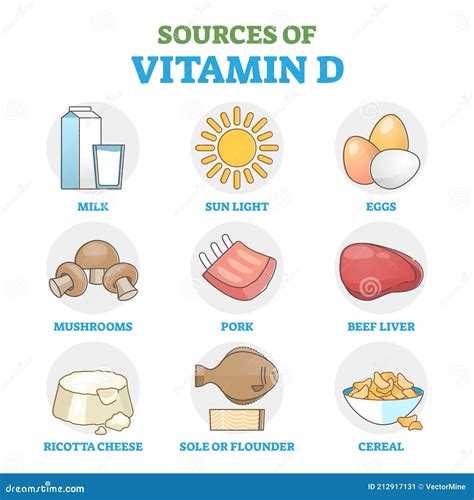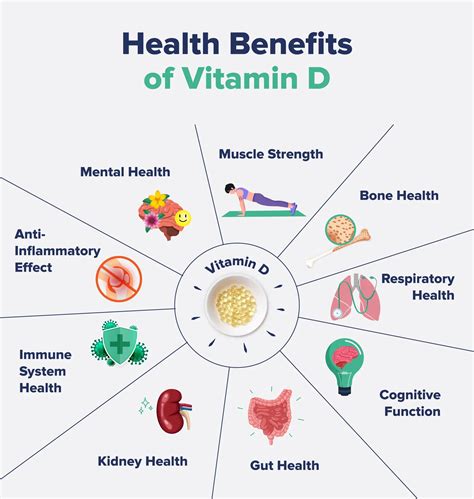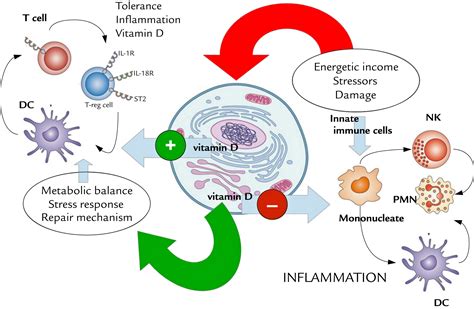Intro
Vitamins and minerals are essential nutrients that play a crucial role in maintaining our overall health and well-being. Among these nutrients, vitamin D and calcium are two of the most important ones, particularly when it comes to bone health. Vitamin D and calcium work together to help our bodies build and maintain strong bones and teeth, and their deficiency can lead to a range of health problems. In this article, we will delve into the world of vitamin D and calcium, exploring their importance, benefits, and ways to ensure we get enough of these essential nutrients.
Vitamin D and calcium are often referred to as the "bone-building duo" because of their synergistic relationship. Vitamin D helps our bodies absorb calcium from the food we eat, which is then used to build and maintain strong bones and teeth. Without sufficient vitamin D, our bodies cannot effectively absorb calcium, leading to a range of health problems, including osteoporosis, rickets, and osteomalacia. Furthermore, vitamin D and calcium also play a crucial role in maintaining our immune system, reducing inflammation, and regulating cell growth.
The importance of vitamin D and calcium cannot be overstated, particularly in today's world where many people are deficient in these essential nutrients. According to the National Institutes of Health, approximately 40% of adults in the United States have a vitamin D deficiency, while 70% of adults have a calcium deficiency. These deficiencies can have serious consequences, including an increased risk of osteoporosis, fractures, and other bone-related disorders. Moreover, vitamin D and calcium deficiencies have also been linked to a range of other health problems, including diabetes, hypertension, and certain types of cancer.
Vitamin D Benefits

Vitamin D is unique in that it can be obtained through exposure to sunlight, as well as through diet and supplements. However, many people are unable to get enough vitamin D through these sources, particularly during the winter months when sunlight is scarce. Additionally, people with darker skin, those who are overweight or obese, and individuals with certain medical conditions may be at increased risk of vitamin D deficiency.
How Vitamin D Works
Vitamin D works by binding to specific receptors in our cells, which then triggers a range of biological responses. These responses include the regulation of calcium levels in our blood, the maintenance of strong bones and teeth, and the regulation of immune system function. Vitamin D also plays a role in reducing inflammation and regulating cell growth, which can help to reduce the risk of chronic diseases such as cancer and cardiovascular disease.Calcium Benefits

Calcium is found in a range of foods, including dairy products, leafy green vegetables, and fortified foods. However, many people are unable to get enough calcium through diet alone, particularly those who are lactose intolerant or who follow a vegan diet. Additionally, certain medical conditions, such as celiac disease and Crohn's disease, can increase the risk of calcium deficiency.
How Calcium Works
Calcium works by providing the necessary building blocks for strong bones and teeth. It also plays a role in regulating muscle and nerve function, which can help to reduce the risk of conditions such as muscle cramps and osteoporosis. Calcium also helps to regulate blood pressure and reduce the risk of cardiovascular disease.Vitamin D and Calcium Deficiency

Vitamin D and calcium deficiency can be caused by a range of factors, including:
- Poor diet
- Lack of sunlight exposure
- Certain medical conditions
- Certain medications
- Age and sex
Risks of Deficiency
The risks of vitamin D and calcium deficiency are significant, particularly for older adults and individuals with certain medical conditions. For example, osteoporosis and fractures can have a significant impact on quality of life, while also increasing the risk of mortality. Additionally, vitamin D and calcium deficiency have been linked to a range of other health problems, including diabetes, hypertension, and certain types of cancer.Food Sources of Vitamin D and Calcium

It is also possible to obtain vitamin D and calcium through supplements, although it is generally recommended to obtain these nutrients through diet and sunlight exposure whenever possible.
Supplementation
Vitamin D and calcium supplements can be useful for individuals who are unable to get enough of these nutrients through diet and sunlight exposure. However, it is essential to consult with a healthcare professional before taking any supplements, as excessive intake can have negative consequences.Health Benefits of Vitamin D and Calcium

Vitamin D and calcium also play a role in reducing inflammation and regulating cell growth, which can help to reduce the risk of chronic diseases.
Chronic Disease Prevention
Vitamin D and calcium can help to prevent a range of chronic diseases, including osteoporosis, cardiovascular disease, and certain types of cancer. By maintaining strong bones and teeth, regulating immune system function, and reducing inflammation, vitamin D and calcium can help to reduce the risk of these diseases.Importance of Vitamin D and Calcium for Bone Health

Bone Health and Osteoporosis
Osteoporosis is a condition characterized by weak and brittle bones, which can increase the risk of fractures. Vitamin D and calcium can help to reduce the risk of osteoporosis by maintaining strong bones and teeth, regulating calcium levels in our blood, and reducing inflammation.Role of Vitamin D and Calcium in Immune System Function

Immune System Function and Autoimmune Diseases
Vitamin D and calcium can help to reduce the risk of autoimmune diseases, such as rheumatoid arthritis and lupus, by regulating immune system function and reducing inflammation. They can also help to reduce the risk of infections, such as the common cold and flu.What are the benefits of vitamin D and calcium?
+Vitamin D and calcium offer a range of benefits, including maintaining strong bones and teeth, regulating immune system function, and reducing the risk of chronic diseases such as osteoporosis and cardiovascular disease.
What are the risks of vitamin D and calcium deficiency?
+Vitamin D and calcium deficiency can increase the risk of osteoporosis and fractures, as well as other chronic diseases such as cardiovascular disease and certain types of cancer.
How can I get enough vitamin D and calcium?
+Vitamin D and calcium can be obtained through a range of food sources, including fatty fish, fortified dairy products, and leafy green vegetables. It is also possible to obtain these nutrients through supplements, although it is generally recommended to obtain them through diet and sunlight exposure whenever possible.
What are the symptoms of vitamin D and calcium deficiency?
+The symptoms of vitamin D and calcium deficiency can vary, but may include weak and brittle bones, increased risk of fractures, and a range of other health problems such as fatigue, weakness, and mood changes.
Can vitamin D and calcium supplements be beneficial for overall health?
+Yes, vitamin D and calcium supplements can be beneficial for overall health, particularly for individuals who are unable to get enough of these nutrients through diet and sunlight exposure. However, it is essential to consult with a healthcare professional before taking any supplements, as excessive intake can have negative consequences.
In conclusion, vitamin D and calcium are two essential nutrients that play a critical role in maintaining our overall health and well-being. By understanding the importance of these nutrients, we can take steps to ensure we get enough of them through diet, sunlight exposure, and supplements. Whether you are looking to maintain strong bones and teeth, regulate immune system function, or reduce the risk of chronic diseases, vitamin D and calcium are two nutrients that should not be overlooked. We invite you to share your thoughts and experiences with vitamin D and calcium in the comments section below, and to share this article with anyone who may benefit from this information.
